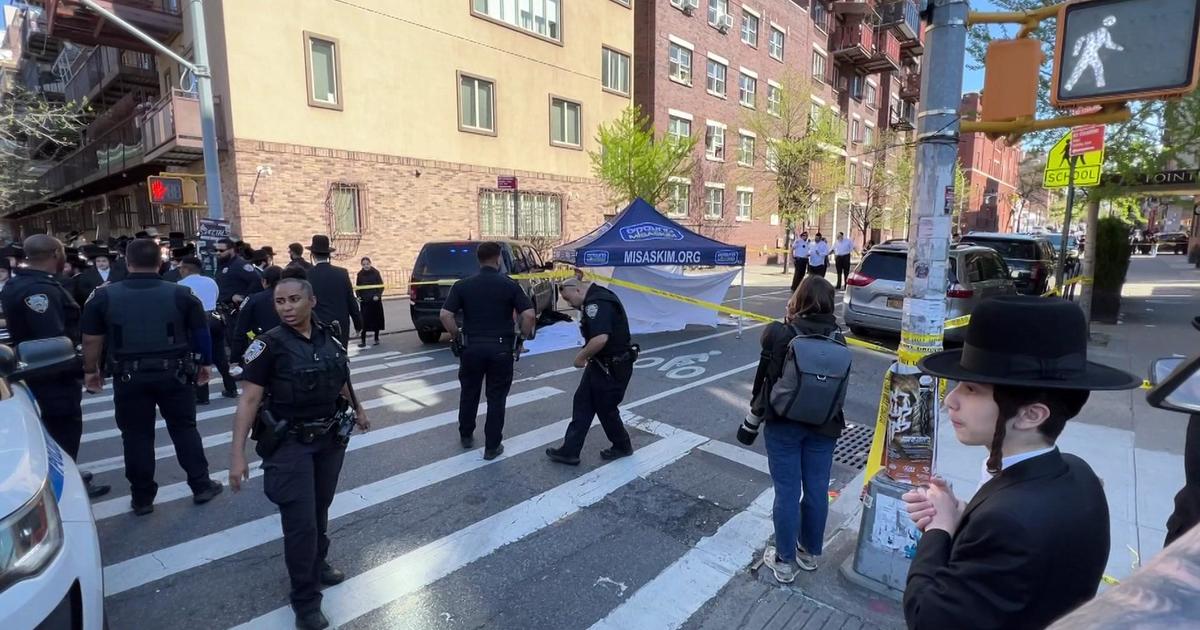Cruz, Sanders Win Wisconsin Primaries
MILWAUKEE (CBSNewYork/AP) -- Ted Cruz and Bernie Sanders came out victorious Tuesday night against their respective frontrunner opponents in the Republican and Democratic presidential primaries in Wisconsin.
As CBS2's Tony Aiello reported, it was a must-win for Cruz – and he succeeded.
Cruz was projected as winner with 52 percent of the vote, Donald Trump with 31 percent, and Ohio Gov. John Kasich with 15 percent.
Cruz's victory gives critics of GOP frontrunner Trump hope that they can stop the billionaire businessman's rise to the party nomination. They are trying to deny him the majority of delegates and force a contested convention in July.
Addressing supporters Tuesday night, Cruz said his victory in Wisconsin marked a "turning point" and a "rallying cry." He noted that he had won Utah, the first six delegates in Colorado, and 18 delegates in North Dakota.
The Texas senator said the media had once called Wisconsin "a perfect state" for Trump.
"But the hardworking men and women in Wisconsin stood and campaigned tirelessly to make sure that tonight is a victory for every American," Cruz said.
Cruz said it was a "bad night" for Democrat Hillary Clinton, whom he said he would beat in the general election after securing the nomination either before or at the Republican National Convention in Cleveland.
"It was a bad night in the Democratic primary, and it was an even worse night for her in the Republican primary," Cruz said. "We are winning because we're uniting the Republican Party."
Cruz further said his campaign raised over $2 million Tuesday. He also thanked Republican Wisconsin Gov. Scott Walker, who endorsed him after ending his own presidential bid several months ago.
Walker stood next to Cruz as the Texas senator delivered his Wisconsin victory speech.
"Tonight, Wisconsin has lit a candle guiding the way forward," Cruz said.
Cruz said he expects to gain over 100 delegates on Trump when Wyoming and Colorado finish voting.
Cruz also cast his victory as a sign that he is the only candidate who can stop Trump. He has also called on Republicans to unify behind him and pushed Kasich to drop out of the race.
Cruz said he looked forward to "in November, for the first time since 1984, painting the Badger State bright Republican red."
CBS News exit polling before the results were announced showed Cruz beating Trump in the vast majority of demographic categories in Wisconsin – including women and men of all ages, non-college grads, registered Republicans, evangelicals and non-evangelicals.
Trump had only been ahead among independents and moderates, and voters who wanted a political outsider, someone who "tells it like it is," and who think trade is taking jobs from American workers.
Trump is the favorite in the next primary on April 19 in his home state of New York. He remains the only Republican who can clinch enough delegates to capture the nomination before the party convention.
Trump was lying low Tuesday night, but he is planning a major rally at Grumman Studios on Long Island on Wednesday.
"This is going to go on the next two weeks," said U.S. Rep. Peter King (R-N.Y.) "It's bringing a level of primary excitement to New York on the Republican side that we have never had before."
Meanwhile, while Sanders remains a powerful force in the Democratic primary, a win over Hillary Clinton does little to significantly cut into her delegate lead. But his victory does add to a string of others that have rallied supporters, and he was emphatic in his conviction that he could be successful if his supporters came out to vote.
Sanders won by an estimated 54 percent to Clinton's 45 percent.
As he addressed supporters, Sanders said he was polling well ahead of Trump in a possible general election matchup – even better than Clinton would fare.
He also expressed pride in the grassroots nature of his campaign, with no money from superPACs.
Sanders said "in an unprecedented manner in American history," his campaign had received more than 6 million individual donations averaging $27 each.
"To paraphrase Abraham Lincoln at Gettysburg, this is a campaign of the people, by the people and for the people," Sanders said.
Sanders also dismissed "pundits" who cast young people as indifferent to politics and more interested in video games.
"All over this country, young people are standing up and saying: 'You know what? We want to help determine the future of this country,'" Sanders said.
Sanders went on to rally the crowd with the main points of his campaign, from universal health care to a minimum wage hike to $15 per hour. He noted that New York was among the states that recently passed legislation that will raise the minimum wage to $15.
"Yes, we can change the status quo when we think big and when we have a vision," he said.
Clinton's only public reaction to the results in Wisconsin was a congratulatory tweet to Sanders.
Before Sanders was announced as a winner, he was projected as ahead among men, voters over 45, white voters, voters of all income groups, independents and liberals.
Clinton maintained a strong lead with non-white voters, winning three out of four black voters and two thirds of non-whites overall, CBS News reported. But non-whites make up only 16 percent of the electorate in Wisconsin.
In New York, Clinton is still polling ahead. But her lead has shrunk dramatically from 40 points last June to just 10 points in the latest CBS News poll.
Sanders spokesman Jeff Weaver had a bold prediction.
"It is very, very, very unlikely that either candidate, either Secretary Clinton or Senator Sanders, will go into the convention with the majority needed of pledged delegates in order to win," Weaver said.
The Clinton campaign tried to close the door on talk of an open convention.
"There's not going to be any doubt, unlike the Republicans, who the nominee is going to be well ahead of the convention on our side," said Clinton campaign spokesman Brian Fallon.
Clinton has spent most of the last week campaigning in New York, and will debate Sanders in Brooklyn on Thursday of next week.
"I am very proud of the campaign that Sen. Sanders and I have run because we have run it on issues," Clinton said.
The next primaries after New York will be by Connecticut, Delaware, Maryland, Pennsylvania and Rhode Island on April 26.
Leaders in both parties are eager to turn their attention toward the general election. Clinton would enter the fall campaign saddled with persistent questions about her trustworthiness, but also demographic advantages that Democrats believe would be magnified against Trump.
(TM and © Copyright 2016 CBS Radio Inc. and its relevant subsidiaries. CBS RADIO and EYE Logo TM and Copyright 2016 CBS Broadcasting Inc. Used under license. All Rights Reserved. This material may not be published, broadcast, rewritten, or redistributed. The Associated Press contributed to this report.)



